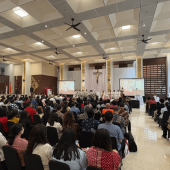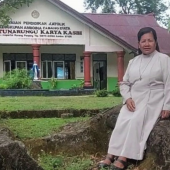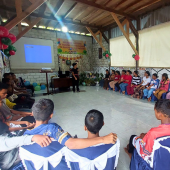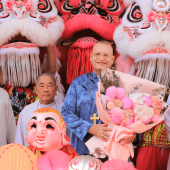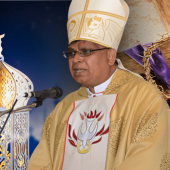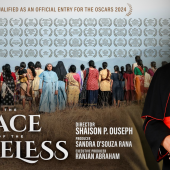Indonesia: National Conscience Movement (GNB) Presses President on Civilian Supremacy, Police Reform
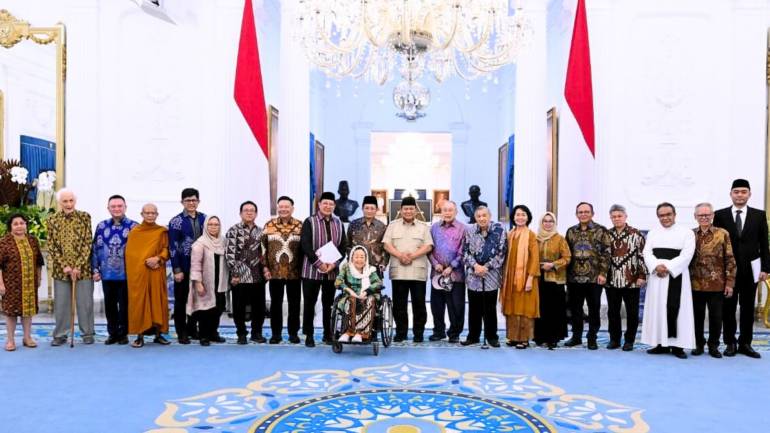
The Gerakan Nurani Bangsa (National Conscience Movement, GNB), a coalition of Jesuit philosophers, Islamic scholars, human rights defenders, and civil society leaders, met with Indonesian President Prabowo Subianto on September 11 to raise urgent concerns about growing unrest in the country.
The group pressed for four key commitments: upholding civilian supremacy, establishing an independent probe into recent protests, reforming the police, and releasing detained student activists.
Among those present was Jesuit philosopher Franz Magnis-Suseno, while Cardinal Ignatius Suharyo, Archbishop of Jakarta, was absent due to pastoral duties. The urgency of their call followed violent incidents in Jakarta and other cities in late August.
Former Religious Affairs Minister Lukman Hakim Saifuddin stressed that only an independent investigative commission could credibly assess what happened during the August 25 and 28–30 demonstrations. “The President agreed to establish such a commission,” Lukman said, noting that details would soon be announced.
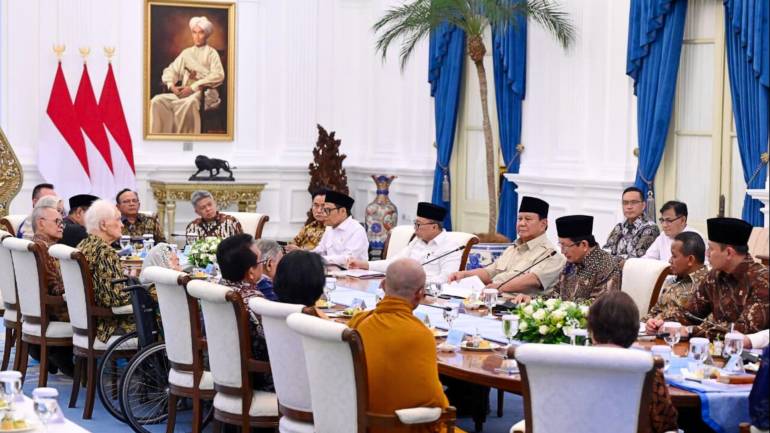
Beyond accountability for the protests, GNB urged broader reforms: economic fairness, political transparency, and respect for human rights. President Prabowo, participants reported, was receptive. Budiman Sudjatmiko, a former 1998 reform activist who now heads the Poverty Eradication Acceleration Agency, quoted the President’s assurance: “Regarding the detention of our student friends, this will be followed up.”
The call for comprehensive police reform also took center stage. Prabowo committed to form a special commission on police reform, a move welcomed by Reverend Gomar Gultom, former head of the Communion of Churches in Indonesia (PGI). “This is a meeting of minds,” he said. “What the GNB has formulated is already part of the President’s own concept.”
The dialogue also confronted Indonesia’s deepest anxiety: the fear of martial law. Prabowo repeatedly affirmed his commitment to civilian supremacy. “The President stressed his commitment again and again,” Lukman noted. “The real test will be how this pledge is implemented.”
For Islamic scholar Prof. Quraish Shihab, the meeting was encouraging: “What we presented was well understood and positively received.”
By the meeting’s close, GNB had secured presidential commitments to:
-
establish an independent probe into August’s unrest,
-
form a police reform commission,
-
review the detention of activists, and
-
safeguard civilian supremacy.
Whether these pledges become concrete reforms remains uncertain. With rallies continuing in Jakarta and activists still behind bars, the next move lies squarely with the President.
Radio Veritas Asia (RVA), a media platform of the Catholic Church, aims to share Christ. RVA started in 1969 as a continental Catholic radio station to serve Asian countries in their respective local language, thus earning the tag “the Voice of Asian Christianity.” Responding to the emerging context, RVA embraced media platforms to connect with the global Asian audience via its 21 language websites and various social media platforms.









